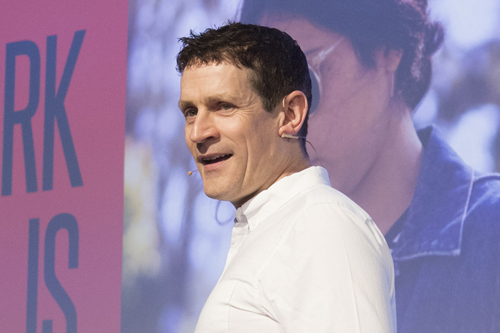The popular Food for Thought series returned for a new series this week with an insightful presentation from Dr Gillian Tett, author and editor-at-large at the Financial Times, to discuss how anthropology can explain business and life.
Dr Tett, who holds a PhD in Social Anthropology from Cambridge University, spoke with Dr Daniel Beunza, Associate Professor of Management at the Business School (formerly Cass), about the ways in which businesses can support and evolve their understanding of behaviour by studying consumers, markets, and organisations through an anthropological lens.
She addressed questions on the relationship between anthropology and capitalism and her concerns about the loss of indigenous underrepresented cultures from mainstream society in a world of 3D avatars and artificial intelligence.
“As we come out of Covid-19 we need to think very hard about what it means to be human in the digital world. We live in an age where we are enthralled with technology. Big data, AI, balance sheets, economic models. All these have given us fantastic navigational techniques for looking at the world but culture is hard to define. It matters in the context in which we operate – it is all the unstated assumptions and ideas that assign us to groups to shape how we look and forecast the future.
“I am an anthropologist and want to know how this shapes lives. I have tried to lay out a framework for thinking about culture and how it affects us. We need to think about more than artificial intelligence, but also anthropological intelligence so we can work out how to use these tools in our everyday lives more effectively.”
Dr Tett, who recently released a book on the subject, added that in the past, anthropologists have gone to different cultures to see how they live, to see with an ‘outsiders’ perspective. She said it pays to turn the lens back at your own culture and to act as ‘a stranger in your own land so you can see yourself better’. Doing this will allow individuals to not only look at the noise of our lives that we pay attention to, but to pay attention to but also the silence and we may not pay attention to.
“People are concerned that globalisation will turn us into a cultural moosh dominated by Hollywood or Silicon Valley. It is a valid concern. Digitalisation has enabled some cultures to become more competent in coalescing together. Look at how the Welsh or Irish language has been revived in the last few decades. The internet is allowing dying languages to have a jolt of life.
“Secondly, cultures never exist in boxes but always spectrums that overlap. In the past dominant cultures have dominated and wiped out those less dominant but patterns of cultural fusion are still possible. For example, when Nestle bought KitKat, a very British brand, it went to Japan and there was an upsurge in sales when teenagers turned it into a good luck token. This popularity meant Nestle created Japanese flavours – wasabi, matcha green tea – which was then exported back into Britain. That is globalisation at its best.”
Find out about and book your place at upcoming Food for Thought sessions, which are each Wednesday at 1pm and follow a 15 minute talk or interview, followed by 15-minute live Q&A with you.
Ends



